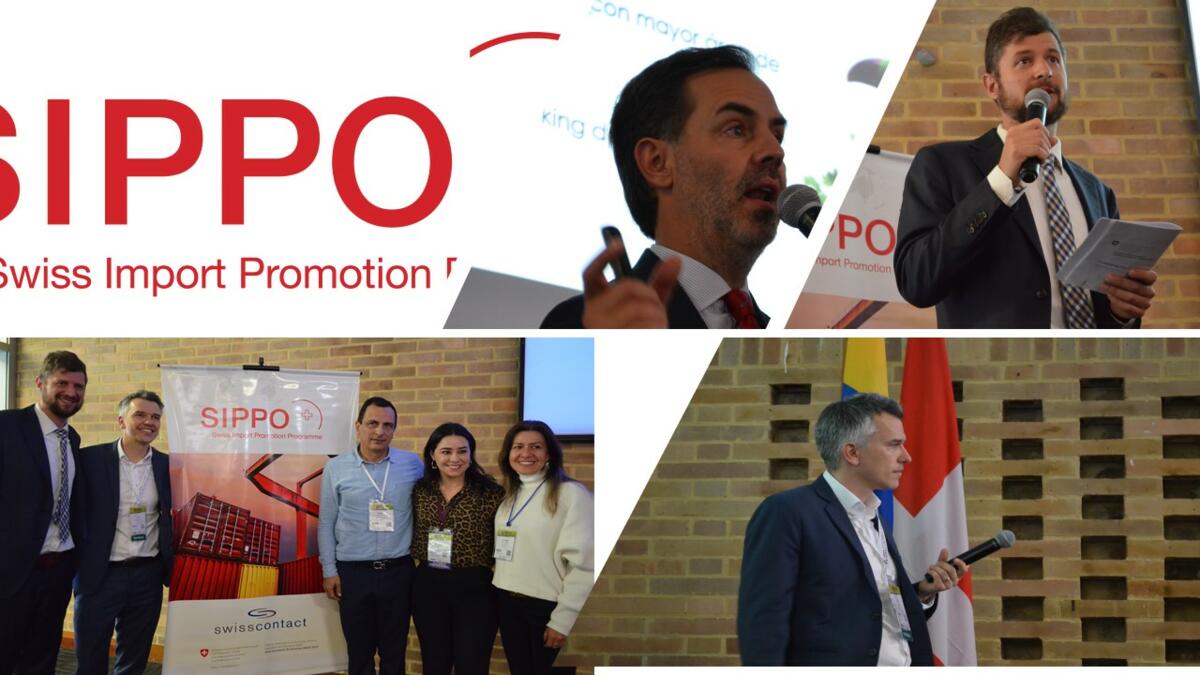“SUSTAINABLE TOURISM: THE KEY FOR THE FUTURE OF THE REGIONS”
Within the framework of the 39th ANATO Tourist Showcase, we carried out the “Sustainable Tourism: The key for the Future of the Regions” panel to sensitize the new regional tourism authorities on the importance of working in the territories on the basis of Sustainable Tourism, a tourism that respects cultural and environmental resources, that strengthens and positively involves the communities where it develops, in order to ensure the integrity of the resources for the future.

The panel "Sustainable Tourism: Key to the Future of the Regions" greeted the Vice Minister of Tourism, Julián Guerrero, who exposed the advances of the National Government's Sustainable Tourism policy, which will have as its main objectives:
- To position sustainability as a fundamental pillar for tourism development and as a factor for competitiveness in tourism businesses.
- To introduce formal guidelines for the value chain to be incorporated into its planning processes and practical business models responsible for the environment and natural resources.
- To adopt a strategic and long-term vision of the sector.
- To promote tourism based on international best practices.
SIPPO consultant, Tim Gamper, presented global trends on sustainable tourism, shared examples of best practices in the Southeast Asian region and made some recommendations for Colombia. He highlighted the uniqueness of Colombia in its high natural and cultural biodiversity resources and the commitment that this implies when developing tourism in the country, indicating as the only option for the preservation of these resources to develop sustainable tourism. He also presented the survey of international operators where Colombia is not yet identified as a sustainable destination, pointing out the opportunities to be generated by an international campaign that links Colombia more with its biodiversity.
The consultant Tim Gamper, finished his presentation with the following recommendations for Colombia:
- To develop destinations with a focus on demand.
- Position the destination according to specific tourist segments.
- Use existing institutions, but strengthen destination management from the bottom up.
- Manage destinations in a flexible way to continue. creating better spaces to visit and live.
Next, the head of the Economic Cooperation and Development (SECO) of the Swiss Embassy in Colombia, Christian Brändli, presented to the participants the contribution that Switzerland is making to support Colombia's sustainable and inclusive economic growth, through its programs: SIPPO, Colombia más Competitiva and COLIPRI. Brändli also indicated that Switzerland ranks first in the Tourism Sustainability indicator of the WEF Travel and Tourism ranking and that cooperation seeks to transfer that knowledge. Additionally, he mentioned the projects that are currently being developed to strengthen the tourism value chain, through the most Colombia Competitive Program: Safari Llanero Destination (Casanare-Meta), Putumayo Destination (Putumayo), Natural Macondo (Magdalena), Trekking in Coffee Cultural Landscape (Quindío, North of the Valley); with an investment of about CHF 1,251,153 Swiss francs; as well as the accompaniment to the internationalization of Sustainable Tourism of Colombia through the SIPPO Program, with its services of effective Participation in international fairs; Missions of buyers and sellers; Study Tours; Development of export strategies; Market intelligence; Knowledge transfer and strengthening of the BSOs.
Finally, the president of the Chamber of Commerce of Armenia and Quindío, Rodrigo Estrada, presented the Trekking and Cycle Tourism project of the Coffee Cultural Landscape, which is being developed with the support of Swiss cooperation, highlighting the articulation processes between the actors of tourism and communities of the departments of Quindío and Valle.
All the presentations of the event, as well as the videos presented in the Panel “Sustainable Tourism: Key to the Future of the Regions” can be found at the following link:
https://drive.google.com/open?id=1I24lGI9Uelit9zTyg3OK6IfOSpdWwqGO



 Bosnia and Herzegovina
Bosnia and Herzegovina











